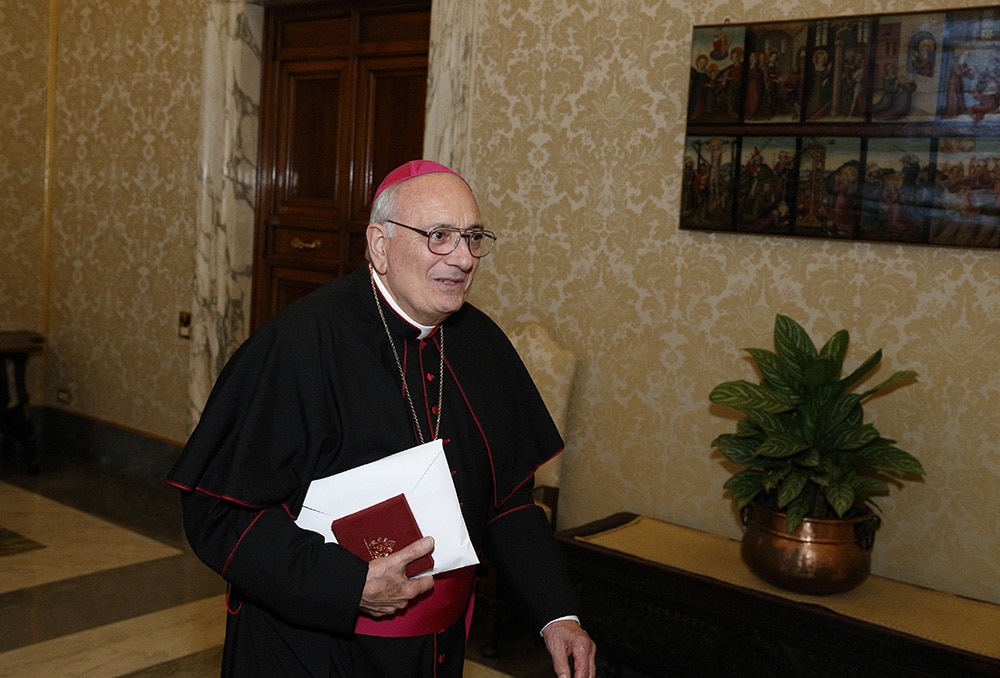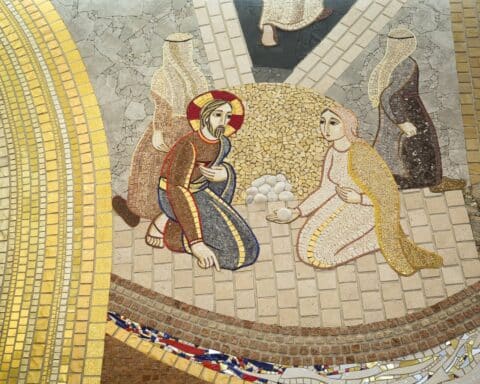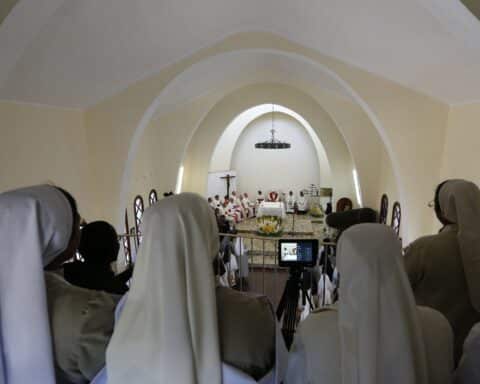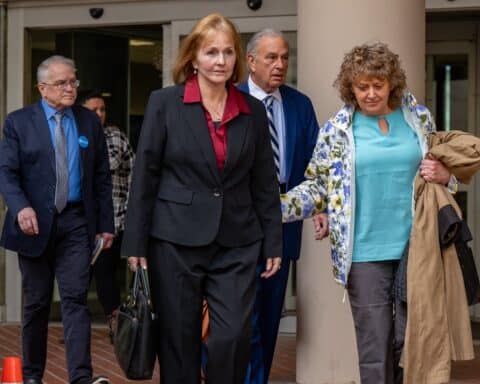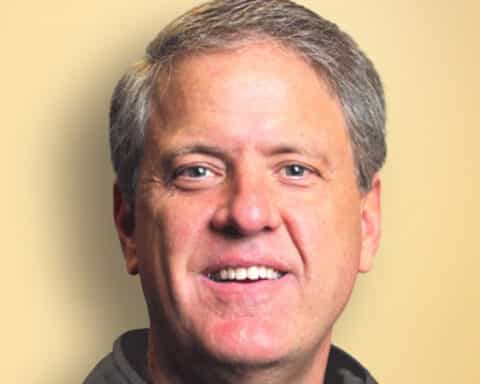Bishop Nicholas DiMarzio of Brooklyn, New York, is the latest Church leader in the United States to find himself under investigation for allegations that he sexually abused minors.
On Jan. 7, the Vatican’s Congregation for the Doctrine of the Faith instructed Cardinal Timothy Dolan of New York, the metropolitan in New York State, to launch a canonical investigation of Bishop DiMarzio, who has denied wrongdoing and said he expects to be fully vindicated.
Under the norms established by Pope Francis’ 2019 motu proprio, Vos estis lux mundi, Cardinal Dolan earlier notified the Holy See of an allegation raised against Bishop DiMarzio that he abused an 11-year-old altar boy when he was a priest in the Archdiocese of Newark in the 1970s.
“As is our practice, the cardinal will rely on outside professional forensic investigators to assist him in this matter,” New York Archdiocese spokesman Joe Zwilling said in a statement provided to media outlets.
Church penalties vary
The allegation against Bishop DiMarzio surfaced last November while he was conducting an apostolic visitation of the troubled Diocese of Buffalo, where Bishop Richard Malone ultimately resigned amid complaints that he mishandled and tried to cover up clergy sex abuse cases.
Meanwhile, a handful of other bishops are under investigation pertaining to child sex abuse. Retired Bishop Joseph Hart of Cheyenne, Wyoming, could face criminal charges for allegations that he molested minors. If those allegations are substantiated in a canonical trial, he faces the prospect of being removed from the clerical state.
Bishop Michael Hoeppner of Crookston, Minnesota, awaits the results of a Church investigation into concerns that he obstructed clergy sex abuse investigations. Bishop Michael Bransfield, formerly of Wheeling-Charleston, West Virginia, finds himself out of office for misusing Church funds and is reportedly under investigation for a sexual misconduct claim involving a minor.
Under Church law, the range of canonical penalties for bishops who abuse their position and cover up clergy sex abuse run the gamut from losing one’s office to being prohibited from exercising public ministry or living in the diocese.
“Depending on the allegation, they might be told to avoid being with children and not to live anywhere near a school or where children are, particularly if their allegations had to do with minors,” said Mercy Sister Sharon Euart, the executive director of the Resource Center for Religious Institutes.
If convicted of grave crimes, bishops can be removed from the clerical state, colloquially known as being defrocked or laicized.
“If it’s financial wrongdoing, typically you’re going to lose your office, but you won’t be dismissed from the clerical state. On the other hand, for sexual misbehavior, if it’s serious enough, it’s either dismissal from the clerical state or a life of prayer and penance,” said Nicholas Cafardi, a civil and canon lawyer who served as an original member of the U.S. Conference of Catholic Bishops’ National Review Board for the Protection of Children and Young People.
Awaiting the McCarrick report
Former Cardinal Theodore McCarrick, accused of sexually abusing minors and seminarians over decades, was removed from the clerical state last year. Catholic News Agency reported in early January that McCarrick, 89, was moved from a friary in Kansas to a residential facility in an undisclosed location for priests who have been removed from ministry.
The Vatican is expected to release a report documenting how McCarrick, the former cardinal-archbishop of Washington, D.C., rose through the ecclesial ranks despite his alleged sexual harassment of minors and seminarians reportedly being known among some Church leaders.
Terry McKiernan from BishopAccountability.org, a nonprofit organization that tracks clergy sex-abuse cases in the United States, told Our Sunday Visitor that it will be “a shame” if the McCarrick report is anything less than forthcoming, because “we really do need to know about McCarrick in detail, and if we don’t, the McCarrick saga is simply going to continue to fester.”
Sister Sharon, a former executive coordinator of the Canon Law Society of America and a former associate general secretary for the U.S. bishops’ conference, told Our Sunday Visitor that the pope decides how the investigation of an accused bishop will be conducted.
“Bishops are accountable to the pope, who might indicate the case should be handled by a dicastery (or office) of the Holy See, and then a recommendation made to him,” Sister Sharon said. “The ultimate decision regarding a bishop, however, is going to come from the pope.”
Ongoing investigations
The investigations into Bishops Bransfield and Hart were launched before Pope Francis last May issued Vos estis lux mundi, which established new procedural norms for investigating crimes by bishops. Bishops Hoeppner and DiMarzio are the first Church leaders in the United States to be subject to the metropolitan-driven process called for in Vos estis.
Last September, Archbishop Bernard A. Hebda of St. Paul and Minneapolis announced the Vatican had authorized him to investigate allegations that Bishop Hoeppner “carried out acts or omissions intended to interfere with or avoid” civil or canonical investigations of clerical sexual misconduct in his diocese. Bishop Hebda also notified law enforcement of those allegations.
Archdiocesan staff members, assisted by outside lay experts that included a retired justice of the Minnesota Supreme Court, investigated the allegations. In November, Archbishop Hebda submitted a report based on their findings to the Congregation for Bishops in Rome.
“We have not been instructed to do anything further at this point. It is unclear whether we will be contacted directly by the Congregation for Bishops if/when any finding is announced,” said Tom Halten, a spokesman the Archdiocese of St. Paul and Minneapolis.
Bishop Hoeppner, who is still in charge of his diocese, did not see the report that was sent to the Congregation for Bishops in Rome, said Janelle Gergen, a spokeswoman for the Diocese of Crookston.
“At present, we have no way of knowing whether results from the report will be made available to the faithful, nor do we have any indication of a possible resolution,” Gergen told Our Sunday Visitor.
For covering up clergy sex abuse, Cafardi said the penalties under Vos estis are not as clear.
“We haven’t had a cover-up case brought to conclusion yet,” Cafardi said. “It could be loss of office, but we don’t know.”
Like his counterpart in Wyoming, Bishop Hart is awaiting word on what the Vatican will do next with his case.
“Since the adjudication is in the hands of the Congregation for the Doctrine of the Faith, the Diocese of Cheyenne is not directly involved, and the CDF has not communicated a timeline,” said Diana Marie Waggener, a spokeswoman for the Diocese of Cheyenne.
Bishop Hart, who lead the Diocese of Cheyenne from 1978 to 2001 before retiring, faces several accusations of the sexual abuse of minors. Police in Cheyenne have recommended that criminal charges be filed.
If criminally charged, Bishop Hart, who turns 89 this year, would be the first U.S. bishop to face prosecution for sexually abusing children.
“The Diocese of Cheyenne is committed to transparency about sexual misconduct with minors by those in Church leadership. Each and every credible allegation against Bishop Hart or any clergy member is published,” Waggener said.
In 2018, the Diocese of Cheyenne conducted its own investigation, which substantiated evidence that Bishop Hart allegedly abused three boys in Wyoming. The diocese has since received additional allegations.
Sister Sharon told Our Sunday Visitor that the Church generally waits until the civil authorities adjudicate a priest’s case before launching its canonical procedures.
“That’s why, with regards to a priest, you may wonder why you don’t hear anything for a year or even longer,” Sister Sharon said. “It’s often because the civil case is running its course through the system.”
Allegations in West Virginia
Bishop Bransfield of West Virginia, who resigned in September 2018 amid allegations pertaining to financial and sexual misconduct, was recently asked by his successor, Bishop Mark Brennan, to submit to a plan of amends that includes paying back nearly $800,000 in Church funds that he is alleged to have used to fund a luxurious lifestyle. To date, Bishop Bransfield has not indicated if he will abide by that request.
In December, the Washington Post reported that law enforcement authorities were investigating sex abuse claims against Bishop Bransfield, including an allegation that he inappropriately touched a 9-year-old girl in 2012. Bishop Bransfield has denied all wrongdoing.
“The child abuse allegations have to be looked at,” said Michael Iafrate, co-coordinator of the Catholic Committee of Appalachia, who told Our Sunday Visitor that he believes those allegations should reopen the matter of what canonical penalties Bishop Bransfield should face.
“I think it’s reasonable to ask these questions,” Iafrate said. “I think this is far from over.”
Brian Fraga is a contributing editor for Our Sunday Visitor.

